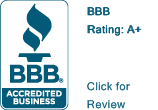Chapter 7 Bankruptcy
 Sometimes it is impossible to pay off the debts you have accumulated. Chapter 7 Bankruptcy offers relief from creditors and can put a stop to debt-collection harassment at work and at home.
Sometimes it is impossible to pay off the debts you have accumulated. Chapter 7 Bankruptcy offers relief from creditors and can put a stop to debt-collection harassment at work and at home.
Bankruptcy under Chapter 7 of the U.S. Bankruptcy Code is a serious step. In an “asset bankruptcy,” a trustee of the court will sell off non-exempt assets to pay creditors. But in reality, most Chapter 7 proceedings are classified as “non-asset” bankruptcies, meaning the debtor has no qualified assets and can discharge debt through the court with little or no payment to unsecured creditors.
When filing a Chapter 7 bankruptcy the person who is in debt must provide the court with the following:
- Information about income, your employer, how much you make, how often you are paid.
- A list of all creditors, the amount owed them, and what the reasons for the debt.
- A list of all your property.
- A detailed list of your monthly living expenses such as food, clothing, medicine, taxes, utilities and transportation.
- Tax returns.
Filing the bankruptcy petition will immediately stop collection calls and most other collection actions. If you are hounded by collector’s telephone calls, these will stop once a bankruptcy petition is filed.
An appointed trustee will set up a meeting with you and your creditors and you will be required to truthfully answer questions about your finances and ability to repay the debts owed. If it is determined that you meet the requirements for Chapter 7 Bankruptcy, the trustee will liquidate assets. In Florida you may be able to retain your home, car and other exempted assets. A Chapter 7 Bankruptcy takes about five months before your debts are “discharged” or taken away. Creditors will not ever be able to come after you for the discharged debts. But there are some debts that won’t go away with a bankruptcy, including some taxes, alimony and child support, and most student loans.
Chapter 7 Bankruptcy can also be filed for corporations, partnerships and sole proprietorships. It is similar to personal bankruptcy in that the business assets are liquidated to pay creditors.
Chapter 7 Bankruptcy Lawyer
You will need to consult a qualified Florida attorney about filing for bankruptcy. A lawyer can help walk you through the complicated bankruptcy laws and help provide you and your family with a new financial beginning.
The forms required for bankruptcy and more detailed information about bankruptcy can be found at www.uscourts.gov.









